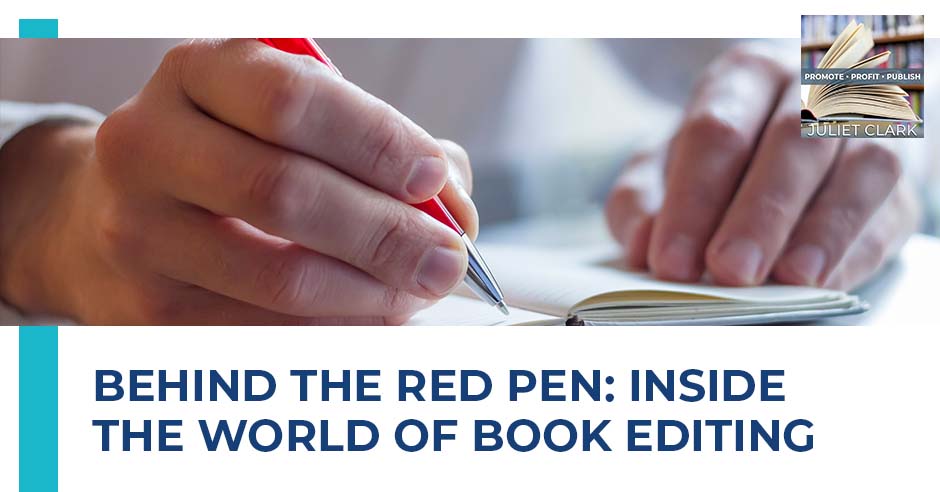
Have you ever fantasized about publishing your book but felt anxious about the editing process being a complex and puzzling procedure? Fear not, aspiring author! Today, Tyler Tichelaar, the owner of Superior Book Productions, takes us into the world of book editing to reveal what exactly makes a good editor. He emphasizes the importance of the editor’s sample edits to the editor’s editing style and understands the thought process behind the changes. To be a strong editor, one must go beyond just having keen eyes for grammar and transform a manuscript by sharpening its focus, identifying genre nuances, and becoming your champion. So, if you are ready to embark on your self-publishing journey, learn how to find a qualified editor, for it is an investment in your book’s success. Join Tyler Tichelaar today and see how a book editor can make your book into the next literary gem waiting to be discovered.
—
Watch the episode here
Listen to the podcast here
Behind The Red Pen: Inside The World Of Book Editing With Tyler Tichelaar
In this episode, we have an editor with us and a good one. I must say I’ve worked with him a couple of times now. I love the workflow, the way he handles it, the way he handles his clients. I’m looking forward to telling you more about that. It’s not too late to get yourself into our AI Author Academy. We had it in the month of April. It was a major hit. The feedback we got was pretty amazing. It was much better than I thought it was. People took away tools that completely changed the way that they put their platforms together in a much more streamlined way using a couple of different tools.
One of them is quite a surprise. We actually created courses with it, outlines for courses, deep dives, and advertising steps. There was a lot going on in the April course. You can sign up for that at AIAuthorAcademy.com. We only take about eight people because there are so many one-on-ones with this program. Be sure to get yourself signed up. We do have a few spots left, but not very many. I’d love to have you be a part of that and supercharge your author platform.
Our guest is Tyler Tichelaar. He has a PhD in Literature from Western Michigan University and a Bachelor’s and Master’s degree from Northern Michigan University. He’s an Editor and the Owner of Superior Book Productions and also the Owner of his own publishing company Marquette Fiction. For twelve years, Tyler has served as vice president and then president on the board of the Upper Peninsula Publishers and Authors Association.
Tyler is a former guest host of Authors Access Internet Radio. He’s authored 24 books ranging from historical fiction, fantasy, and nonfiction to a play and literary criticism. He lives in Marquette, Michigan, where the roar of Lake Superior, mountains of snow, and sandstone architecture inspire his writing. It doesn’t matter nowadays whether you’re a fiction author or a nonfiction author. Most of the time, I’ve worked with Tyler on nonfiction projects, so our business books, but he’s excellent at fiction too, which is difficult to find and write because I used to be a fiction writer. Stay tuned for Tyler.
Before we get started, I want to remind you about our sponsor for this show. It is LifeWave. If you are feeling a little bit creaky and want some holistic ways to get rid of all that, if you go to the doctor and you say, “I ache, or I can’t sleep,” or whatever it is, your immediate go-to is drugs. For most of us, we don’t want to deal with that anymore.
I encourage you to talk to Andy Nam about his LifeWave business. Not only can you make money with it, but I’ve used their products and they are amazing. You can get ahold of them at Calendly.com/thefoolishcouple/superbrand. Go over there. These are patches you can wear for twelve hours a day, daytime or nighttime. I prefer nighttime. They have changed my old creaky body into something that’s livable now. All right, stay tuned for Tyler.
—
Tyler, welcome. It’s great to have you here.
Thank you, Juliet. I’m thrilled to be here.
What Propelled Tyler Into Publishing
You have been one of the finest editors that we’ve worked with on projects, and usually, our authors bring their editors with them. We prefer not to choose because I know a lot of publishing companies do, but we want you to be comfortable that we don’t hand you off to somebody who’s not going to respect your voice in a book. I want to compliment you on that because I love the way you do things. We actually changed the structure of our company to match what you did with Samantha. Tell us a little bit about how you got into this. What propelled you to go in this direction?
I own Superior Book Productions, and that’s not a publishing company, but we’re a book production company. We help authors edit their books and also do layouts so they can prepare to self-publish their books. We assist them in that process. I’ve been doing that since 2009. I got started because I became an author myself. I grew up always wanting to be an author. Probably from about the time I was nine or so, I decided I wanted to write books.

Book Editing: Superior Book Productions is not a publishing company. We are a book production company that helps authors edit and lay out their books to prepare themselves to self-publish their books.
I started writing books in high school and then sending them out, the manuscripts, trying to get published, receiving rejection letters, usually form letters, but every once in a while, a nice letter that would say, “We don’t think this is for us,” or, “We don’t think this book has the right audience for our readers.” I wrote a lot of historical fiction and regional fiction here in Upper Michigan. New York publishers didn’t think it would have a broad appeal.
One day, I finally got sick of all these rejection letters. By that point, I was aware that other people here in Upper Michigan were starting to sell publisher books. I said to myself, “Why should someone in New York decide if people in Upper Michigan get to read my books?” It made absolutely no sense to me. I knew that if I published the books, I knew I was a good enough writer by that point that I would find a readership. I decided to publish my first book. I went with what you’d call a subsidy publisher, one of the hybrid publishers that were popular online at the time.
It was not expensive to do, but the thing is, they would do all the layout and the printing for you. What was expensive was that I had to buy copies of my books from them, and it was not cheap to do that. I did not have a lot of money at the time, so I could only afford to buy about 100 books at a time, and then I would bring them to the local stores and try to resell them.
I found out stores want 40% discounts to sell your books. For every book that I bought from this publisher and then tried to sell to the store because they wanted a 40% discount, I was going to lose $0.08 a copy. I thought, “That does not work. I have to find more ways of doing this in a manner that I’m actually going to make some money off.”
I wanted to be published. Not so much about the money as the writing, but I wasn’t going to lose $0.08 on every book I sold. Over time, I joined the UP Publishers and Authors Association, which was new at that point, and I learned a lot of things about self-publishing, different ways to do it, and less expensive ways to do it. Eventually, I became the vice president and then the president of the UP Publishers and Authors Association.
I was the president from 2008 to 2019, actually, so quite a long time, partly because it’s hard to find anybody else who wants to do the job, but I think I kept the organization going and I found the right people to be on the board who then eventually were able to take over and succeed me. I pride myself on that.
In the process, once I started getting my books published and people started to know who I was, I started meeting other authors. I met some publishing coaches who were very impressed that I had a PhD in Literature, and they wanted somebody to edit their books. They said, “We don’t know anybody who has a PhD in English. You would be great to do editing for us.” I said, “I would love to do that.”
I branched into helping authors with editing and I have a business partner, Larry Alexander, who has been my friend for over 30 years. We met in graduate school. He does the book layout for some of our clients. He also helps with some of the editing. Here I am, years after I started writing my first book, I’ve now published 24 books. I’ve edited well over 500 books and I’ve been self-employed as an editor for over 15 years.
Your story sounds so much like mine. I came from the publishing and advertising world and I delved into that. I don’t know which company you use, but I used one of those big ones as well. We didn’t know back then. I don’t know if you did. I didn’t know until a little bit later that all of those small self-publishing companies that we were using back in 2007, 2008, 2009, and 2010 were actually subsidiaries of those big companies that were rejecting all of us. Did you know that back then?
I did not know. I think they’re more open now that there’s a lot of them. They have their traditional publishing branch and then they have their side branch where they’re clear that yes, they’ll publish your book if you pay them to do it. A lot of the companies existed back then; they’ve all bought each other up and merged into 1 or 2 companies now.
Reception To Self-Published Books
That’s very true. Let’s get a little bit into more about that 40%. That’s what it was back when we were doing this in 2009 and 2010, and it’s up to 55% now, but what was your experience going into these bookstores? Were they receptive to the self-published books? I feel like they’re much more receptive now than they were back then.
Yeah, I would definitely say they’re more receptive now. Back then, here in Marquette, Michigan, where I live, there were 3 or 4 bookstores. There was an independently owned bookstore, Snowbound Books, which is still in business. There was Book World, which was a small chain bookstore here in the Great Lakes area. There was a B Dalton, which was a national bookstore. I sold a lot of books at B Dalton for the first 4 or 5 years until they closed down completely.
Book World lasted until just before the pandemic, I would say. Snowbound is still going. They’re celebrated their 40th anniversary in 2024, which I’m happy about. My books were local, so they were willing to take a chance on them. Especially Book World, they only wanted to pay me as the book sold rather than pay me outright. I had a lot of other places also that weren’t bookstores where I tried to sell my books like the local museums, the gift shops, a lot of the different tourist places in the UP, the national parks, those sorts of places would buy some. Most of those also wanted to do consignment.
Over the years, I lost a lot of books by doing consignment because I would have them in a restaurant, in a town 50 miles away and the restaurant would go out of business and never call me and say, “Come get your books.” My books would disappear. Now, I only have maybe half a dozen places where I actually locally sell my books, but I only do that also in terms of they buy the books from me. If the books don’t sell, that’s their problem, not my problem, because it was too much to try to keep track of all the books.
Now, I also sell a lot of books online through Amazon, IngramSpark, Barnes & Noble, and different online websites. I found that as the years have gone by, I started out with a website and I was selling books through my website. Now, I hardly ever get to sell off of my website. Maybe at Christmas, I get a few, but everybody is going to the online bookstores to buy books or they go to Snowbound here in Marquette and buy their books and then I bring books to Snowbound to sell every once in a while.
I think most people do. That’s why we work so hard with traffic school. Books are sold online. You need that digital presence out there to be able to sell them, but people don’t realize that. I used to do a lot of local things, too. I wrote fiction novels. They took place in San Luis Obispo, LA, counties in that area. It was easy because it was local fiction. Same experience. I also had the experience of, I don’t know who you used, and I don’t want to bad mouth anybody on here, but the company I used also sold me or tried to sell me a lot of stuff that doesn’t sell books.
Books are sold online. You need that digital presence out there to sell them. Share on XBack then, they tried to sell you bookmarkers. I actually had a client. I was at her house because I started out in a senior center with my publishing company. I was actually at her house, and a very large company called her while I was sitting there. They said that they had someone interested in turning her book into a screenplay. For $20,000, they could do that and shop it to Hollywood. I literally looked at her and I said, “How many copies did you sell?” She said, “Twelve.” I was like, “How many of those people were family?” She’s like, “Twelve.” I thought that was such a scam to pull.
I still get a lot of telemarketing calls from people who say, “We’ve done a study of your book, and we’re very interested in it. We think it will make a wonderful best-selling film.” I say, “Which book are you talking about? I have 24 of them.” At the time, they can’t even tell me what the title is or they’re picking a title that was like my second published book. I don’t know why they’re so fixated on that specific book. It’s the second book in a series and they don’t even seem to realize that you would think they’d want the first. These people are not in any way ethical.
There was so much. It sounds like you experienced what I did back then and we don’t do that in our company. Here, it’s cheap to publish, but we’re going to mark up the book so high on the back end that you won’t be able to sell them. They have a guarantee. I remember I figured it out one time. Once I got in touch with Ingram, and they have those calculators online, I would figure out what would this cost to print at Ingram.
The Cost To Print
I’d go back to the publisher that I used, and it was like a 50% markup. They were making money right and left, not only on the books that they were selling authors, but if you figure that when they go into like an Amazon, and you’ve got retail minus 50% or 55% for the distributors and then they’ve marked up this book to the point where you’re getting $1.
They priced my first book because it was a long book, about 200,000 words and about 480 pages long. In 2006, my first book came out. This company priced it at $25.95, and to buy 100 copies, I had to pay like, I think, $15.65 a copy. Now, I have it available through IngramSpark and it’s, I don’t know, $5 or $6 many years later. I’ve never raised the price on that book because it was so high to start out with, and I can still print it and make a profit off it.
Editing
Yeah, that’s crazy. I don’t think I have raised the price of mine either because there are costs that I don’t have to pay because I own the company. It’s very interesting how this is more through time with it. Let’s talk a little bit about editing because I think as an editor, you probably see the stories that people tell and then the book comes over to me and they get their first format to look through and then they start complaining, “The editor took out all this stuff and I need to put it back in.” A lot of times, you guys take it out because it’s not critical information in the story. Talk a little bit about that and how you work. Why would you take stuff like that and how putting it back in can be detrimental to that book?
It depends on the book whether it’s fiction or nonfiction. I do a lot of what are personal development books where they use a lot of personal stories to make their points. It might be a book about overcoming your fear or overcoming obstacles, something like that, a dozen chapters discussing different things and they have stories included. A lot of the stories, like you said, sometimes they’re not relevant to the point. Sometimes I’ll say, “Can you give us more details? Can you pick a different story?”
I try not to delete stories from the books, but I write them comments and let them know that these things need to be revisited and rethought. You’re right that a lot of the times, when the book is done, I always tell the author and most of the layout people I work with prefer that I send the manuscript to them rather than the author sending the manuscript to them because I’ve had authors in the past who I return their book to them. They decide to make a bunch of changes and then they send it to the layout person.
The book gets laid out with all these typos that they introduced into it, which I didn’t know because I never saw the manuscript again. Also, I always tell them, “We are done once it goes to the layout person. You do not want to rewrite anything. The only thing we want to change is if we find a typo,” and yet, they will start rewriting sentences.
I’ve had people make 500 corrections, ridiculous rewrites that are not needed, revising whole paragraphs, and even inserting new chapters. It becomes a nightmare for the layout person, the author, and the editor in the whole process. Authors need to understand that the writing is done once the book goes to the layout person. If you want to come up with a second edition later, fine. At this point, we don’t want to rewrite anything.
Authors should understand that the writing is done once the book goes below a person. Share on XThat’s what I loved about what you did because once the layout was done, I assumed anything that was changed was between you and the author. I always get caught in the middle of that with, “This story doesn’t make sense.” When you think about it, if I tell you a story, I’m probably going to tell it in great detail. To get the point across, you probably don’t need the who, what, where, and how in detail. Those are the types of things that you’re cutting. I don’t want to say cutting from the story, but you’re making the story more readable because, a lot of times, that could be boring when you give so much detail.
For example, I have a lot of authors who say, “I’ve written this book. It’s a transcript from my podcast and I turned them each into a chapter,” and I looked at it and think, “No one wants to read this because it’s a transcript from a podcast.” It’s fine to listen to the podcast. It will make sense. When you transcribe those word for word, it’s very boring to read. It’s full of um and ah and people saying fragments because they back up and they go back to explain things.
I go in and I rewrite all of that and make it concise and make everything chronological because when we tell stories, we’ll say, “I forgot about this,” and then we go back and tell something that happened earlier than where the point we were at. I’ll move paragraphs around those sorts of things, try to make the story flow, and take out anything that’s not relevant.
Yeah, that is so important. We’re actually in the process of working on a real estate podcast anthology. We have someone who’s rewriting the transcripts from it for that reason. A lot of times, they’ll give it to you. I don’t know if you’ve experienced this, but it’s like, “Tyler said this and Juliet said that,” and that is so boring.
If we’d made this conversation into a podcast, no offense to you, but if you were asking me questions and I was giving answers, I would take out your questions and rewrite the first sentence to be a topic sentence into the paragraph. It reads more like an essay.
Fiction Writing
That’s what we’re doing with the anthology as well. You’re giving tips, not transcript-type information. Tell me a little bit about the fiction aspect because we typically work with nonfiction people, but we have a few fiction authors. There’s a lot to edit out in there. I didn’t know a lot of people go from first person to third person, like they don’t realize they’re switching the show versus tell, which is so hard for people.
No offense to the nonfiction authors, but I tend to think the fiction authors tend to be a little bit better writers because they’re the ones that have aspired to be writers since they were kids. Nonfiction writers usually write a book either to get the point across or to support their business or something like that. The fiction writers are the ones who love words. I enjoy working with them, but they’re also a little bit more particular. They’re the ones who are more likely to argue with me about keeping a certain word or changing a word.

Book Editing: Fiction authors tend to be a little bit better writers.
I think what is hard with fiction writing, the things that I do a lot of that I realize is with the dialogue. They like to use fancy dialogue tags. They like to say, “She exclaimed. He blurted out, or he said quickly, or she said angrily.” I have to keep telling them, “Adverbs are not your friends. Leave the adverbs out. We don’t need fancy words. We want to stick to said, asked, replied. Now and then, if you need exclaimed, you can put that in, but if you use an exclamation point, it’s obvious that they exclaimed.”
I try to pare down the dialogue tags and make them as unnoticeable as possible because I firmly believe that the words the character says should be obvious from those words, how they are said. There’s that. Another big issue, which I had myself as a writer in the beginning, is head hopping in scenes where there are two characters and we’re getting both of their thoughts. We’re hopping from one’s head to the other’s as they’re having this conversation, and it becomes very hard to follow. Sometimes, it’s three characters in this scene, that we’re head-hopping.
I try to explain that to them. I did a novel was in the third person, but the whole book was basically from the main character’s perspective. There was another character, the man that she was interested in, but he was a mysterious person and then all of a sudden, we were in his head. When we’re about 85% of the way through the book, we start going into his head. I said, “No. We want to experience the book the way the main character is experiencing the book.” We have to rewrite those scenes or take those references out. We don’t want to know what his motivations are or what he’s going to do because you want to keep us in suspense about who this person is.
I used to write mystery novels. My very first one, Stephen King’s first editor edited and he actually did it. I had to print the manual script and send it off and then he sent it back. What was devastating was when you’re on word and they’re making these little red marks, it’s significantly less painful. You actually get 200 pages back with, “Red, talking head, red.” I think it’s much easier with the online that we have now. What would you do with someone like me? I’m a sucky writer, but I’m a pretty good storyteller. Is that someone who should get involved with you early on in the editing process and actually be doing development with you?
I think that could be done, yes. I think if the author has an outline already done of where the story is going to go, I can usually help them with development, or if they want to write a rough draft and send it to me, then I can help them with development. Sometimes, I do a manuscript evaluation where I read the manuscript and then give them feedback, saying what works, what doesn’t, and It can work in different stages. It’s like coaching through the process or editing once the manuscript is finished.

Book Editing: If the author already has an outline of where the story will go, I can usually help them with development.
Questions You Should Be Asking Your Editor
Probably, this would be a second or third who already got that feedback from the first book, I would imagine. I actually had my third book sold over 25,000 copies. It was the first time that I had so many readers that I got critical reviews back. One of the ones that hurt my feelings so bad, and this was a great story, “I would have thought she would have used someone that wasn’t a monkey for an editor.” This person was already editing my next book. I was horrified. I found out four books in that I had a bad editor. If someone comes to you and they’re a first-time author, what kind of questions should they be asking in that interview process with an editor?
I think probably the most important thing is that you ask the editor for an edit sample. You send your manuscript to the editor and you have them do an edit sample and you see what kinds of changes they would make. Make sure you understand why they would make those changes. It doesn’t hurt to get samples from 2 or 3 different editors and compare them because I’ve had lots of people call me up and I tell them roughly what I estimate it would cost and they say, “My brother’s daughter, who’s an English major, said she’d do it for $200.” You get what you pay for. She may be the best editor in the world for all I know, but you don’t know that unless you get an edit sample and compare it.
When you send your manuscript to an editor for them do an edit sample, see what changes they made, and understand why they made those changes. Share on XAnother one. I have had lots of authors who thought their books were already edited. They came to me and said that they needed proofreading and every sentence rewritten because the editor didn’t know how to edit a book. Just because someone is an English major doesn’t mean that they are an editor. They might be a great writer. They might know a lot about literature. They might know a lot about writing, but they may not necessarily be a good editor and be able to see words that need to be taken out, words that don’t fit, or excess stuff. A lot of what I do is chopping out unnecessary words. I’ll take a 15-sentence and turn it into a 10-word sentence so it’ll flow better.
I love that. I get that a lot, too. My aunt Edna was an English school teacher. She taught English, and it’s not the same thing there. I think you need 2 to 3 samples as well to see if the editor is actually going to honor your voice because if you lose your voice in the process, it’s ugly too. He actually had a book, and it was the same book that the person called, and he wanted to do the manuscript.
She submitted to an editor and she’s English cockney, I think it is. Her book is written very differently than standard English. She did not resubmit and she ended up with a book that didn’t sound like her characters the way they should. It is very important. Tyler, if we want to talk to you more about how to work with you and what to do, where can we find you? Could you share where we can find that newsletter you put out? You put it out quarterly, don’t you?
Yes. I usually do 4, maybe sometimes 5 times a year. I send out a newsletter. It usually includes about half a dozen of the books that I’ve edited. I write low reviews for them and share them with people so my clients get a little marketing included in their packages. I also share things about my own books coming out and different events that I’m going to do. My website is SuperiorBookProductions.com. I live right by Lake Superior, hence the name. If you go to my website there, you can sign up for the newsletter.
There are a few other interviews there I used to do, written interviews. There are a ton of book reviews of books that I have edited. Almost all the reviews are books I’ve edited. Every once in a while, someone wants a book review, but mostly they’re the books I’ve edited for people. You can see the kinds of different genres I’ve done, everything from biographies and history books to mysteries and romance novels. There’s also information there about the whole editing process, the book layout process, and some guidelines to basic costs. Of course, if you want us to edit your book, you submit the manuscript to me and then I will do an edit sample for you and give you a firm quote once I’ve seen the manuscript.
All right, you guys. Thank you, Tyler. Thank you for coming on the show. If you haven’t seen the magazine for May, Tyler has written an article about editing for the magazine as well. Breakthrough Author Magazine, you can get that free subscription at BreakThroughAuthorMagazine.com. Thank you so much for sharing.
Thank you. It’s been a lot of fun.
Important Links
- AI Author Academy
- Superior Book Productions
- Marquette Fiction
- LifeWave
- Break Through Author Magazine
About Tyler Tichelaar
 Tyler Tichelaar has a PhD in Literature from Western Michigan University, and Bachelor and Master’s Degrees from Northern Michigan University. He is an editor and the owner of Superior Book Productions and also the owner of his own publishing company, Marquette Fiction. For twelve years Tyler served as vice-president and then president on the board of the Upper Peninsula Publishers and Authors Association. Tyler is a former guest host of Authors Access Internet Radio. He has authored twenty-four books, ranging from historical fiction, fantasy, and non-fiction to a play and literary criticism. He lives in Marquette, Michigan, where the roar of Lake Superior, mountains of snow, and sandstone architecture inspire his writing.
Tyler Tichelaar has a PhD in Literature from Western Michigan University, and Bachelor and Master’s Degrees from Northern Michigan University. He is an editor and the owner of Superior Book Productions and also the owner of his own publishing company, Marquette Fiction. For twelve years Tyler served as vice-president and then president on the board of the Upper Peninsula Publishers and Authors Association. Tyler is a former guest host of Authors Access Internet Radio. He has authored twenty-four books, ranging from historical fiction, fantasy, and non-fiction to a play and literary criticism. He lives in Marquette, Michigan, where the roar of Lake Superior, mountains of snow, and sandstone architecture inspire his writing.

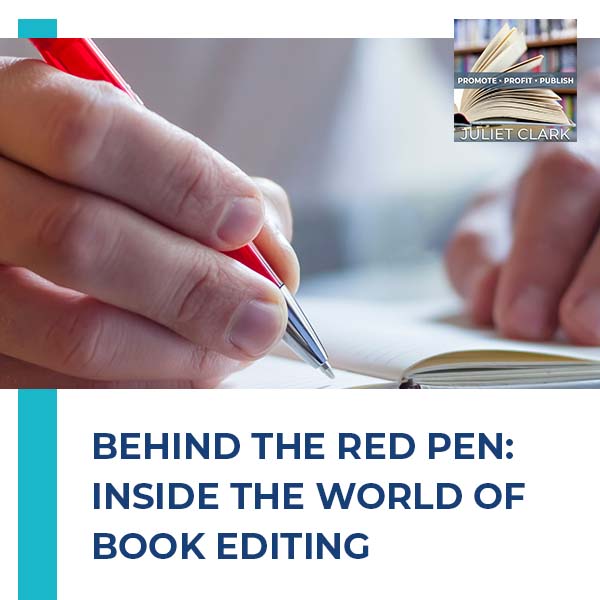

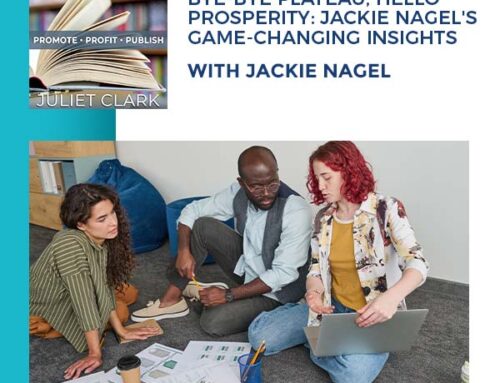
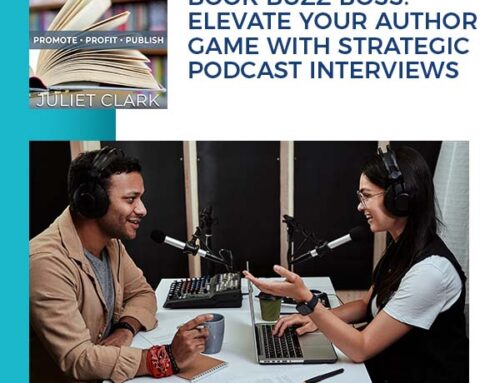
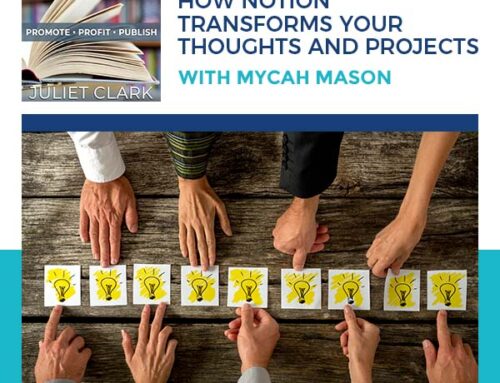
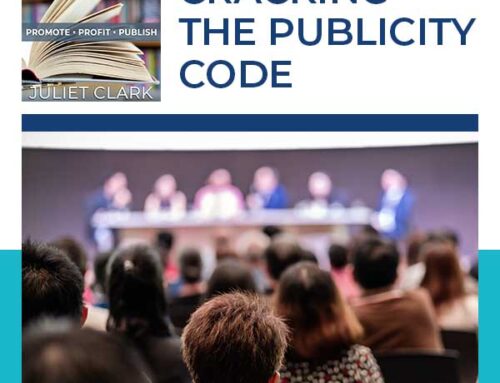


Leave A Comment